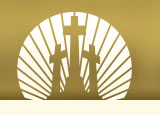History
Until World War II, the main concern of the LCAS was the qualification of academicians. For this purpose a special fund was established, which enabled young scholars to improve their knowledge at Western universities. The library of the Academy was set up, congresses were organized every three years thus providing suitable milieu for people to share their knowledge and to discuss matters related to world-view; the scholarly output of those congresses has since then been published in a periodical Works of the LCAS Congress.
During the years of Soviet occupation, LCAS activity in Lithuania was suppressed and it was resumed only by Lithuanian émigrés in Rome. The Academy united Lithuanian academicians, scattered in differrent countries. A number of LCAS centres were established for this purpose. They continued their tradition of organizing congresses, which were convened in Europe and the USA. LCAS Annuals was started to be published, the big amount of other publications was issued (Lithuanian historical sources, biographies of famous personalities, the papers of Academy scientists etc.). Due to the efforts of LCAS the institute of History and Lithuanian Religious Culture was established in Rome.
With the emerging hope of independence, the activity of the Academy was resumed in Lithuania as well. In 1989 the restoration committee was set up in Vilnius, in 1991 the congress was arranged, while on the 7th of March in 1992 LCAS Executive Board was officially relocated to the capital of Lithuania.
At the moment, LCAS is active in all the major cities of Lithuania (Vilnius, Kaunas, Klaipėda, Šiauliai), its members are active in the fields of history, psychology, ethnology, architecture, medicine, information technologies etc. One of the biggest collections of Lithuanian émigrés documents and their cultural heritage, ALKA, has been preserved and still kept in the USA (Putnam, Connecticut); it belongs to the LCAS.




